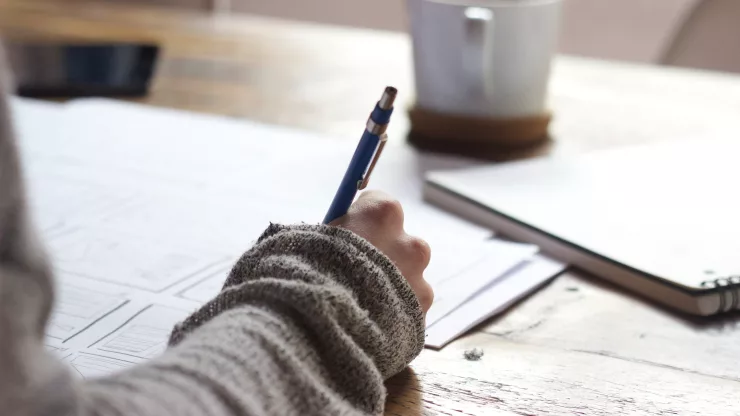Self-awareness is a powerful tool for personal development, allowing us to better understand ourselves and our own capabilities. It can be used to enhance our communication skills, build self-esteem, and set goals.
In this article, we explore how self-awareness contributes to personal development, and how to improve self-awareness through practices such as self-reflection, meditation, journaling, and seeking feedback.
Jump to Section
Introduction
Self-awareness is the ability to recognize our own thoughts, feelings, and behaviors, and to be mindful of our actions and reactions to our environment. It is the first step towards self-improvement and personal development. By understanding our strengths and weaknesses, we can work to maximize our potential and grow as individuals.
What is Self-Awareness?
Self-awareness is the ability to recognize our thoughts, feelings, and behaviors, and to be mindful of our actions and reactions to our environment. It is the first step towards self-improvement and personal development. By understanding our strengths and weaknesses, we can work to maximize our potential and grow as individuals.
Self-awareness is about understanding ourselves, our beliefs, values, and motivations. It is about being mindful of our own emotions, and how those emotions influence our behavior.
It is also about being aware of our external environment and the impact it has on us.
Benefits of Self-Awareness
Self-awareness has many benefits for personal development. It can help us to build self-confidence, develop better communication skills, set meaningful goals, and create healthy habits.
Self-awareness also allows us to better understand our emotions, and how our emotions affect our behavior. By being mindful of our emotions, we can better manage our reactions to difficult situations.
Self-awareness can also help us to better understand our relationships. By being mindful of our own behavior, we can more easily recognize the behavior of others, and how our interactions affect our relationships.
How to Improve Self-Awareness
Improving self-awareness is a process of self-exploration. There are several practices we can use to enhance our self-awareness, such as self-reflection, meditation, journaling, and seeking feedback.
Practices for Enhancing Self-Awareness
Self-Reflection
Self-reflection is the practice of taking time to reflect on our thoughts, feelings, and behaviors. It is about examining our beliefs, values, and motivations, and understanding how they influence our actions.
Self-reflection can be done through journaling, meditation, or simply taking time to think about our experiences and how they have impacted us.
Meditation
Meditation is a practice of focusing on the present moment, allowing us to become more aware of our thoughts, feelings, and behaviors. It can be used to gain insight into our beliefs, values, and motivations, as well as to cultivate self-compassion and acceptance.
Journaling
Journaling is a practice of writing down our thoughts and feelings. It can be used to explore our beliefs, values, and motivations, and to gain insight into our emotions and behavior.
Journaling can also be used to track our progress and to document our journey of self-discovery.
Seeking Feedback
Seeking feedback from trusted sources can be a powerful tool for improving self-awareness. By asking others for their opinions and perspectives, we can gain valuable insight into our behavior and how we interact with others.
Self-Awareness in Personal Development
Self-awareness is an essential part of personal development. It can be used to build self-esteem, understand our emotions, set meaningful goals, and develop healthy habits.
Building Self-Esteem
Self-awareness can help us to build self-esteem by understanding our strengths and weaknesses. By recognizing our capabilities, we can focus on our strengths and work to improve our weaknesses.
This can help us to develop a positive self-image and to feel more confident in our abilities.
Understanding Emotions
Self-awareness can help us to understand our emotions and how they influence our behavior. By being mindful of our emotions, we can learn to recognize our triggers and manage our reactions to difficult situations.
This can help us to better manage our emotions and to become more emotionally resilient.
Setting Goals
Self-awareness can help us to set meaningful goals by understanding our strengths and weaknesses. By recognizing our capabilities, we can set realistic goals that are achievable and that will help us to reach our full potential.
Developing Healthy Habits
Self-awareness can also help us to develop healthy habits by understanding our motivations and behaviors. By recognizing our triggers and patterns, we can work to create healthier habits and behaviors that will benefit us in the long-term.
Summary
Self-awareness is an essential tool for personal development. It can be used to build self-esteem, understand our emotions, set meaningful goals, and develop healthy habits.
Improving self-awareness is a process of self-exploration, and can be done through practices such as self-reflection, meditation, journaling, and seeking feedback.
By understanding our strengths and weaknesses, we can work to maximize our potential and grow as individuals.
FAQ
What is self-awareness?
Self-awareness is the ability to recognize our own thoughts, feelings, and behaviors, and to be mindful of our actions and reactions to our environment.
What are the benefits of self-awareness?
The benefits of self-awareness include building self-confidence, developing better communication skills, setting meaningful goals, and creating healthy habits. It can also help us to better understand our emotions, and how our emotions influence our behavior.
How can I improve my self-awareness?
Improving self-awareness is a process of self-exploration. There are several practices we can use to enhance our self-awareness, such as self-reflection, meditation, journaling, and seeking feedback.

With a deep passion for personal development, Ben has dedicated his career to inspiring and guiding others on their journey towards self-improvement.
His love for learning and sharing knowledge about personal growth strategies, mindfulness, and goal-setting principles has led him to create My Virtual Life Coach.
Contact Ben at [email protected] for assistance.




